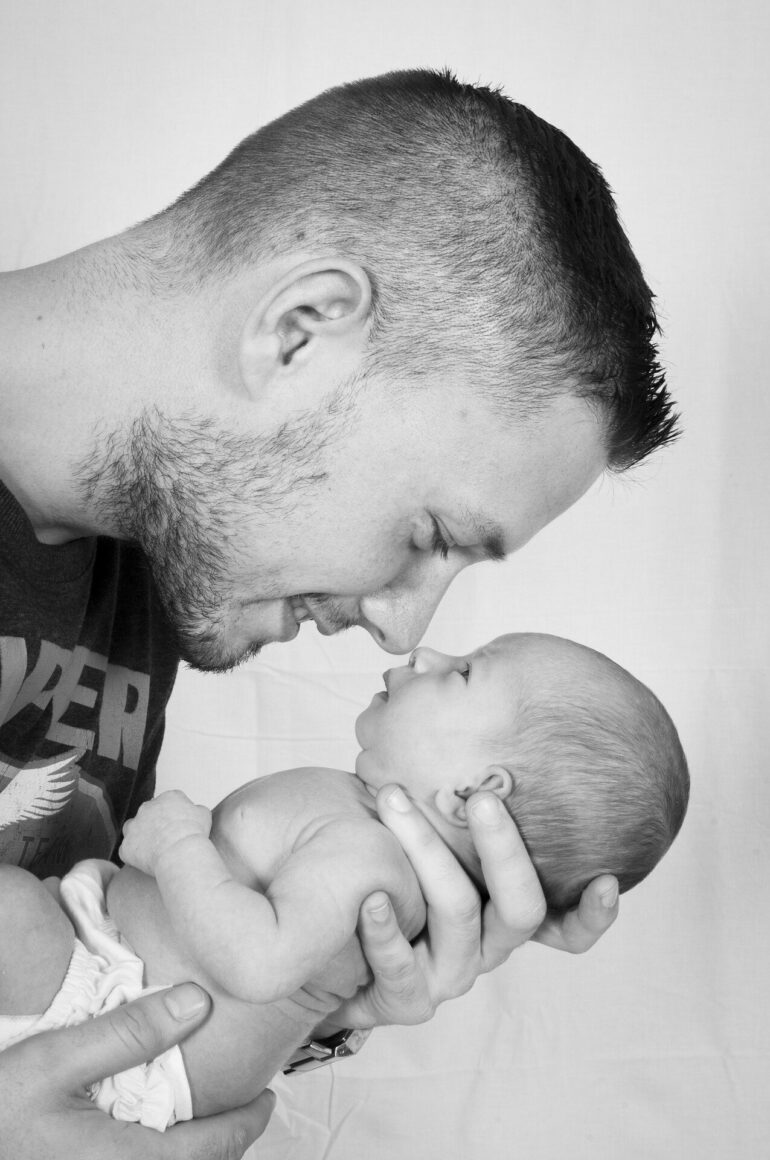Parenting makes the heart grow fonder, and the brain grow … smaller? Several studies have revealed that the brain loses volume across the transition to parenthood. But researchers like me are still figuring out what these changes mean for parents.
In a new study that looked at brain change in first-time fathers, my colleagues and I found that brain volume loss was linked with more engagement in parenting but also more sleep problems and mental health symptoms. These results might point to a cost of caregiving, traditionally shouldered by women but increasingly borne by men also.
Brain changes for mom come with new baby
Caring for an infant demands new motivations and skills, so it is no surprise that it might also sculpt the brain. Research in rodents first identified remodeling of both the structure and function of the brain during pregnancy and parenthood. A new body of research is unearthing similar effects in human parents, too.
In a pair of studies, researchers recruited first-time mothers for a brain scan that occurred before they became pregnant and then scanned them again a few months after birth. Gray matter – the layer of brain tissue that contains neuronal cell bodies – shrank in the mothers but not in a comparison group of women who did not become mothers.
Although a shrinking brain sounds bad, researchers theorized that this more streamlined brain could be adaptive, helping process social information more efficiently and therefore facilitating sensitive caregiving. In keeping with this hypothesis, studies have linked maternal brain changes with women’s degree of attachment to infants and with their responses to images of their infants. Women who lost more gray matter volume also appeared more bonded with their babies.
New dads’ brains change, too
Most studies of the parental brain have focused on women, but emerging evidence suggests that similar brain changes might occur in new fathers, too. My collaborators and I had previously identified brain volume loss in men transitioning to fatherhood, in similar parts of the brain that changed in mothers.
Before you picture the shrunken-head guy from the movie “Beetlejuice,” keep in mind that these changes were subtle. Fathers showed smaller, less statistically significant brain changes than mothers.
Dads vary in how invested they are in caring for the baby, so as a next step, we wanted to know how men’s brain changes across the transition to fatherhood map onto their experiences of new parenthood.
To test this question, we looked more closely at 38 men we scanned in California before and after their baby’s birth. During pregnancy and again at three, six and 12 months postpartum, we asked the fathers how they were feeling about their infants and how well they were sleeping. We also asked about their symptoms of depression, anxiety or other mental health problems.
As before, we saw significant prenatal-to-postpartum brain differences across the entire…



